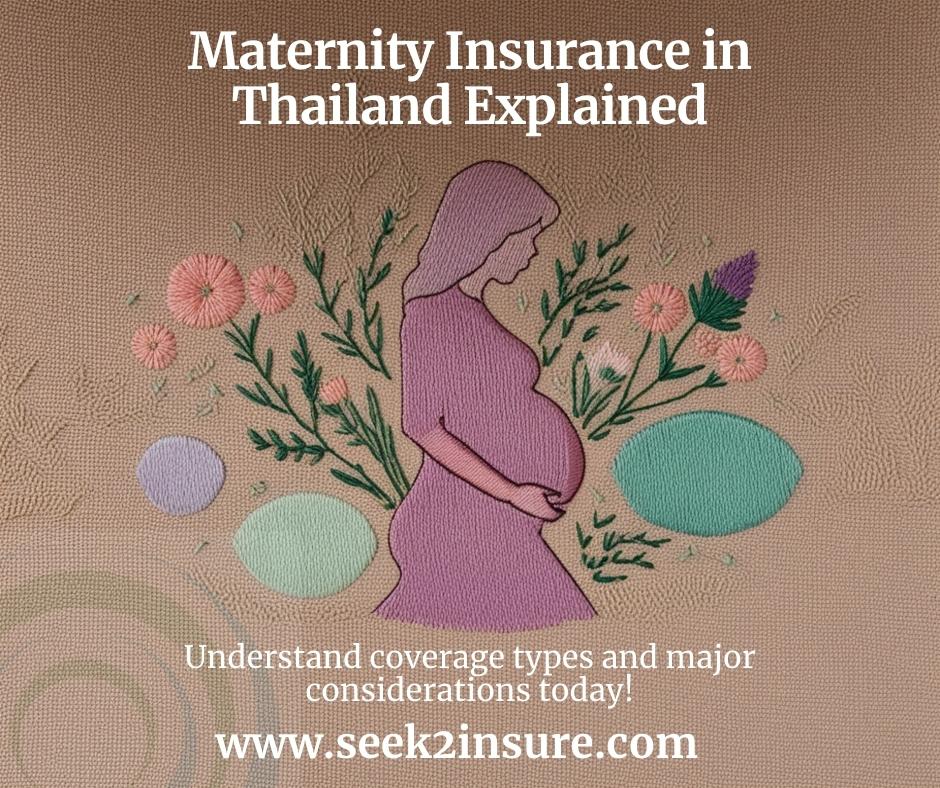On face value maternity insurance is simple. Sign up to a policy and then your maternity is covered.
If only things were this simple!
Maternity insurance in Thailand has numerous subtle cover differences which can mean the difference between being adequately covered and being in a situation where you face bills of millions of baht out of pocket.
Unfortunately insurers do not detail the subtle differences in their plans surrounding maternity. Understanding them is either down to you or down to the broker who you appoint.
I want to write the following article to educate people who are considering having children in Thailand. Choosing the right plan for your requirements really is crucial.
Table of Contents
The 3 types of maternity insurance in Thailand
Basic fixed amount cover
There are lots of options in the market where maternity is covered to a fixed amount. Let’s say for example at 100,000 baht. Normally these plans have maternity coverage built in, meaning it’s not subject to purchasing an ‘add on’.
If you exceed this cover amount, then the rest of the expenses need to be covered by yourself.
Normally, these plans are the cheapest available options.
For people who have a ‘normal’ and uncomplicated pregnancy these plans can be fine. For people who encounter issues, then these plans can leave you exposed.
Examples of providers offering this level of coverage include Pacific Cross, AXA and LMG.
Comprehensive maternity insurance
Comprehensive plans typically have much higher overall cover levels for standard maternity expenses. They will also cover complications and potentially offer coverage for the newborn if there are any health issues.
Given the higher level of coverage, these plans are more expensive than type 1 plans.
Examples of providers offering this type of coverage include April and Allianz Ayudhya.
Complications cover only
Standard maternity expenses are typically predictable. Most hospitals will have packages available to cover them.
The unknown is potential maternity complications. This is where expenses can escalate quickly.
There are cover options available in the market where only complications are covered.
With the above in mind we are in a better position to look at some key considerations for when you are buying a maternity insurance plan.

3 Main Considerations when choosing maternity insurance
Waiting periods
All maternity coverage will have some form of waiting period. This is a period of time between buying a policy and being able to use it for maternity related expenses. The shortest options are around 10 months, with the most common currently being 12 months.
Any expenses incurred during this period will not be subject to reimbursement.
If you are already pregnant, you have left it too late. You will not be able to cover your pregnancy.
Planning ahead with maternity insurance is vital.
Newborn Addition
This is the most commonly overlooked area of maternity insurance but at the same time the most important.
What happens once your baby is born?
This question becomes particularly pertinent when children are born with health issues.
Most fixed amount insurance plans will not allow you to add your newborn into your policy straight away. There will normally be a waiting period before the addition can take place and this is typically 14 days depending on the provider.
You are then required to complete an application form and your baby will be under-written. In practice this means that any health condition your baby has which were apparent at birth will not be covered on going.
This is a huge consideration! It also explains why fixed cover options are significantly cheaper than the comprehensive options.
Comprehensive maternity plans can allow you to add your newborn into your plan without underwriting. This means that should your baby have any health issues, then these will not be excluded from coverage.
Providers have conditions regarding the length of time the mother needs to have been on cover before they’ll permit this, but it’s typically 10/12 months.
Closely tied to this is when you should submit the newborn addition. Whilst this varies on a provider to provider basis it’s typically within the first 30 days.
If you miss the deadline, you need to go through underwriting.
Assisted Conception
Your conception route will impact the level of maternity coverage and the conditions of that coverage.
Assisted conception can mean that your newborn child must be underwritten, which means the route to coverage without underwriting is not an option.
Assisted conception does not only mean IVF. Any medical treatment which increases the chances of you becoming pregnant will be classed as assisted conception.
Note that some providers will not cover pregnancies at all which are the result of assisted conception.
Contact Seek2Insure, maternity insurance in Thailand experts.
If you have any further questions or need guidance regarding your maternity health insurance, please contact us today to speak to one of our expert consultants.






